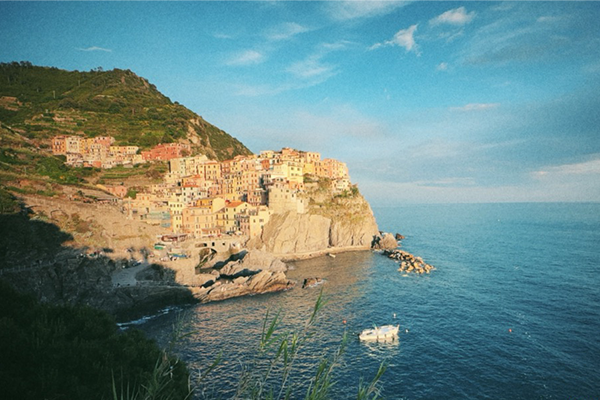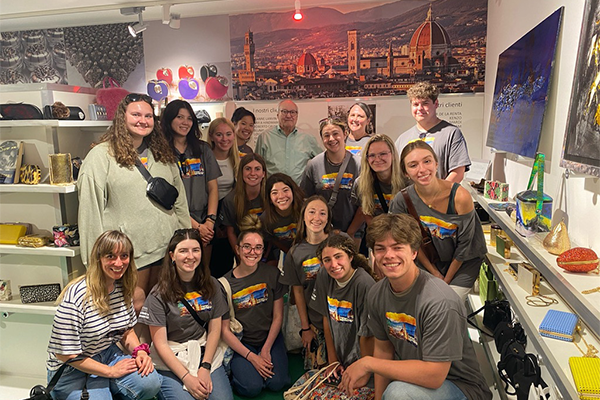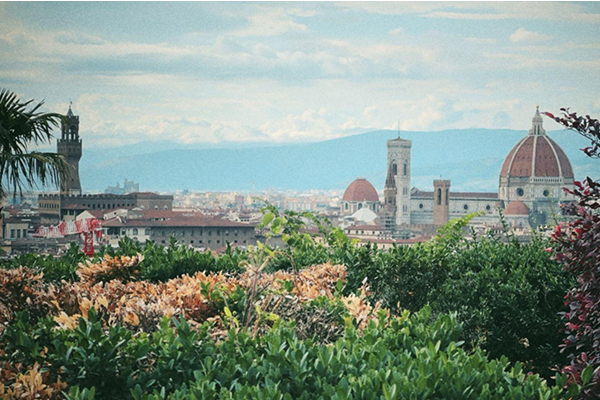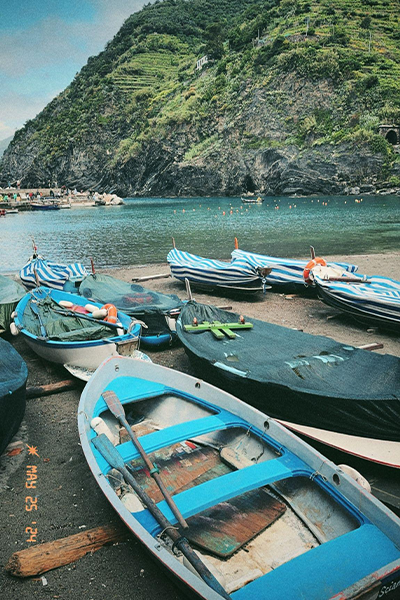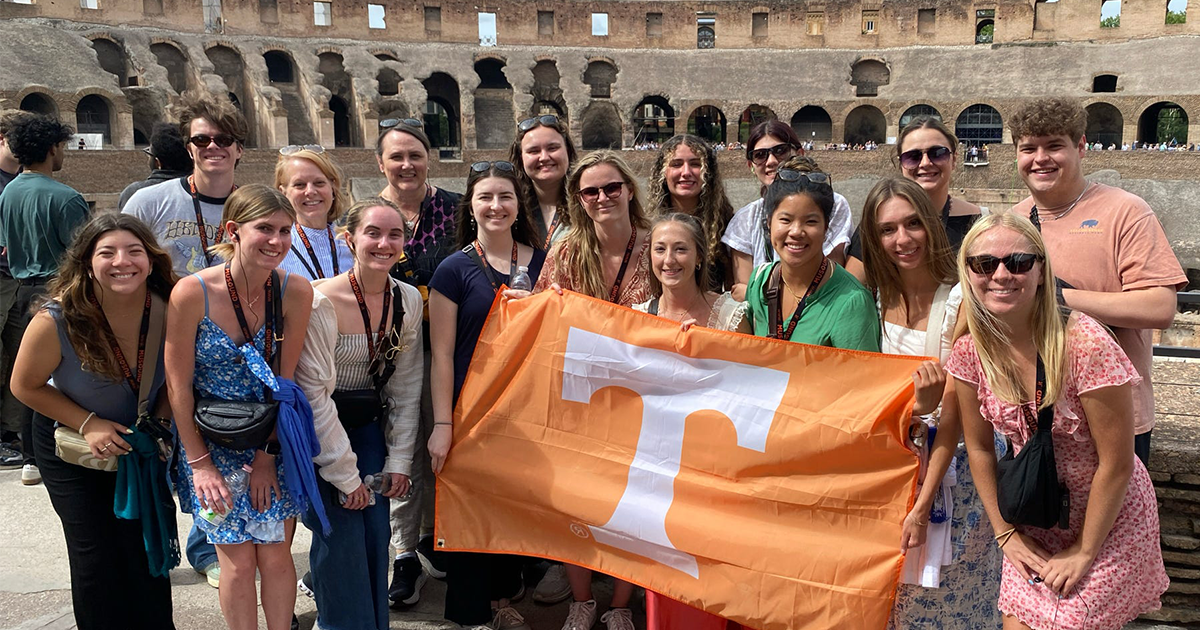Study Abroad Student Report: Alexis Vinson
The mini-term of 2024 provided an unforgettable experience through a study abroad program in Florence, Italy. I participated in IE493, a three-credit hour course titled “Applied Human Factors and Art in Italy.” This course was structured as a blend of academic instruction and cultural immersion, offering at least 15 hours of educational contact time per week, including asynchronous content, guest lectures, and cultural outings. Our weekly schedule also consisted of group activities, tours, and facility visits. The primary objective was to broaden our knowledge of human factors and connect it to art and design within a culturally immersive Italian context.
Throughout the course, we attended various cultural excursions, which were integral to our assignments. These included visits to museums, historical sites, and art galleries in and around Florence. The guided tours were led by local experts who provided in-depth historical backgrounds and insights into the architecture, sculptures, and paintings we encountered. This hands-on approach kept us engaged and eager to learn. In addition to the required excursions, we had optional opportunities to further explore Italian history and culture. These included visiting significant art periods, understanding Italian design, and experiencing daily life in Florence. The blend of academic and cultural experiences allowed us to see the evolution of scientific knowledge and artistic representation of the human form, which is central to the course’s learning objectives.
The business visits were particularly enlightening, offering a unique glimpse into various industries. We toured artisan shops, a leather recycling facility, and a leather factory. Additionally, we visited Stefano Bemer, renowned for its handmade shoes. These visits provided a practical perspective on how traditional craftsmanship and modern engineering intersect, particularly in the context of sustainability and quality.
As an Industrial Engineering major with a minor in engineering management, this course significantly enhanced my understanding of human factors and anthropometrics. We explored how historical and modern advancements in art and science can be combined to predict and create solutions for improving the world. The course provided a unique perspective on how art and engineering intersect, particularly in the context of Italian culture and design. Key learning outcomes included developing a solid understanding of human factors and anthropometrics through the lens of Italian art and design. We gained firsthand exposure to significant periods in art history and Italian culture, enhancing our appreciation and understanding of these fields. Alongside that, we learned to integrate historical and modern scientific and artistic progressions to address contemporary challenges.
Outside of the structured coursework, we had free days to explore different parts of Italy. These experiences were invaluable and allowed us to appreciate the country’s rich history and natural beauty. Some highlights included visiting the iconic Leaning Tower of Pisa and exploring the surrounding historical sites, hiking through the picturesque coastal villages of Cinque Terre, each offering stunning views and unique charm, exploring the ancient ruins of Pompeii, providing a fascinating glimpse into life in ancient Rome, and relaxing on the beautiful beaches of the Amalfi Coast while enjoying its scenic landscapes. These trips taught us how to plan and navigate travel independently, fostering a sense of adventure and independence. Traveling by trains and buses and bonding with fellow students during these excursions created lasting friendships and unforgettable memories.
Participating in this study abroad program was a transformative experience. It allowed me to step out of my comfort zone and immerse myself in a new culture. The smaller class size facilitated close interactions with our professor and fellow students, creating a supportive and collaborative learning environment. The hands-on learning approach made complex concepts easier to grasp and more relatable. This experience taught me the importance of taking chances and being open to new experiences. Initially, the thought of living in a foreign country was daunting, but it turned out to be one of the most rewarding experiences of my academic journey. I learned a lot about myself, developed a deeper appreciation for art and design, and gained valuable insights into human factors that will benefit my future career in industrial engineering.
In conclusion, the study abroad program in Florence was an enriching blend of academic rigor and cultural exploration. It provided a unique opportunity to experience Italian culture while deepening my knowledge of human factors and art. I strongly recommend this program to anyone interested in broadening their academic and cultural horizons. The memories and lessons learned from this experience will stay with me for a lifetime, shaping both my personal and professional development. Florence, with its rich history and vibrant culture, proved to be the perfect backdrop for this course. The combination of academic learning and cultural immersion made this study abroad program an invaluable part of my educational journey.
